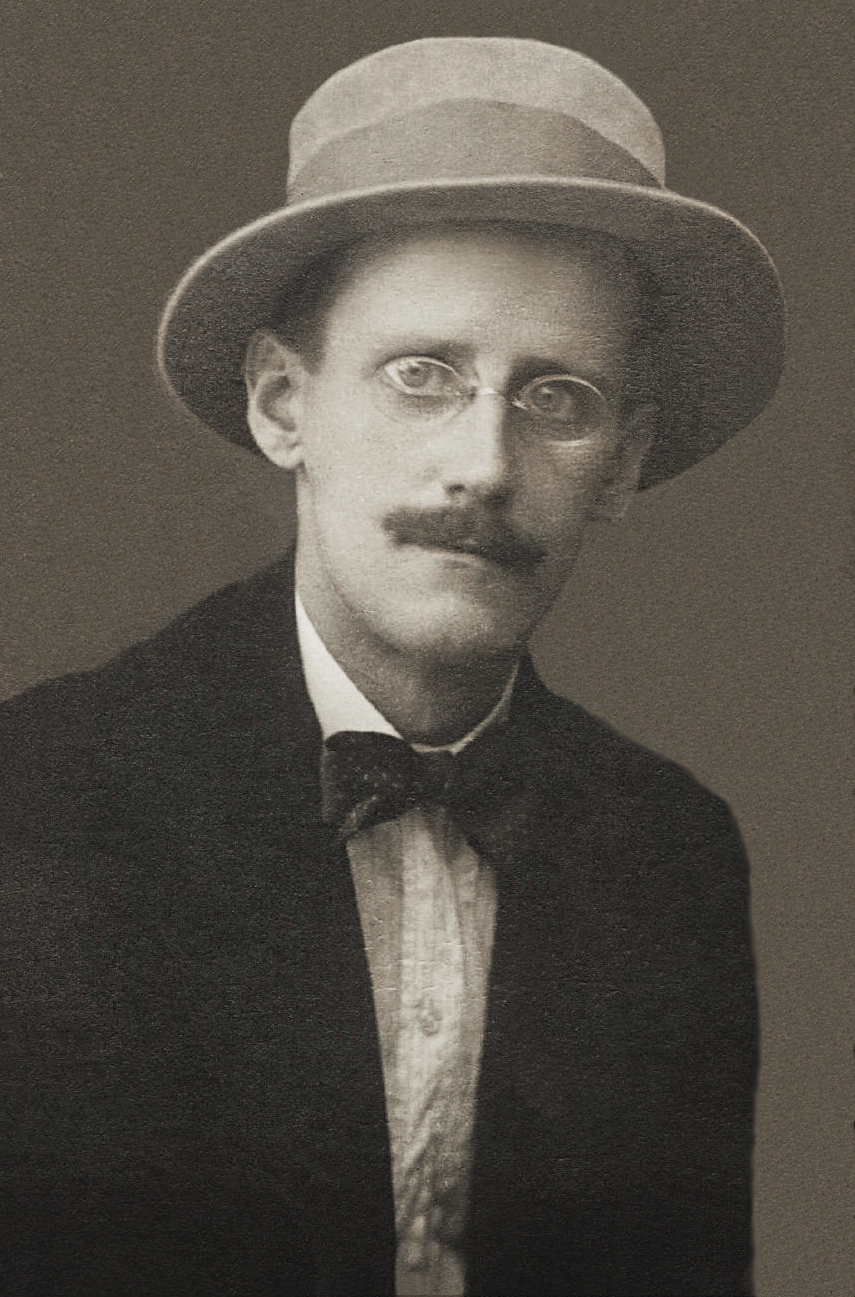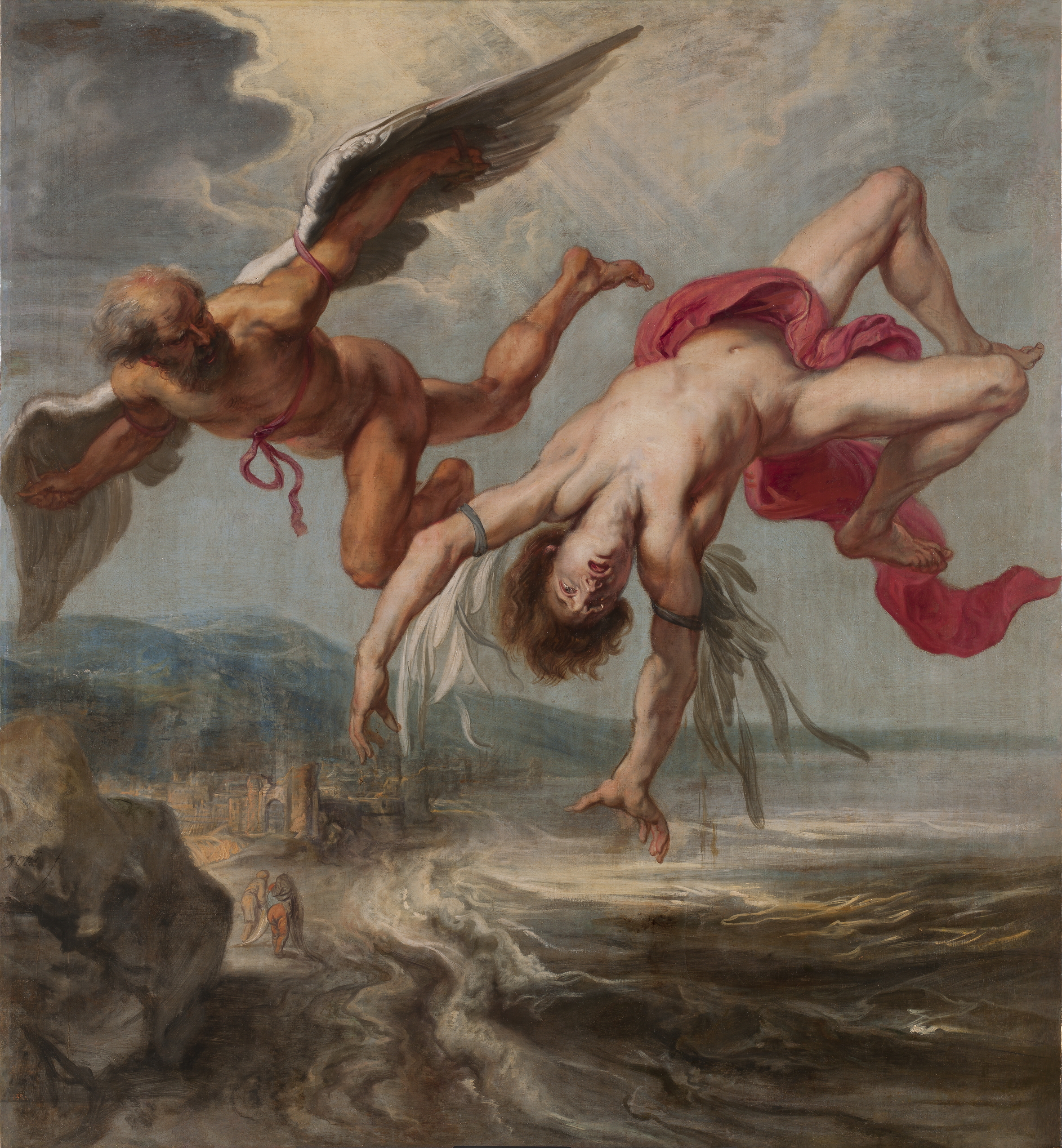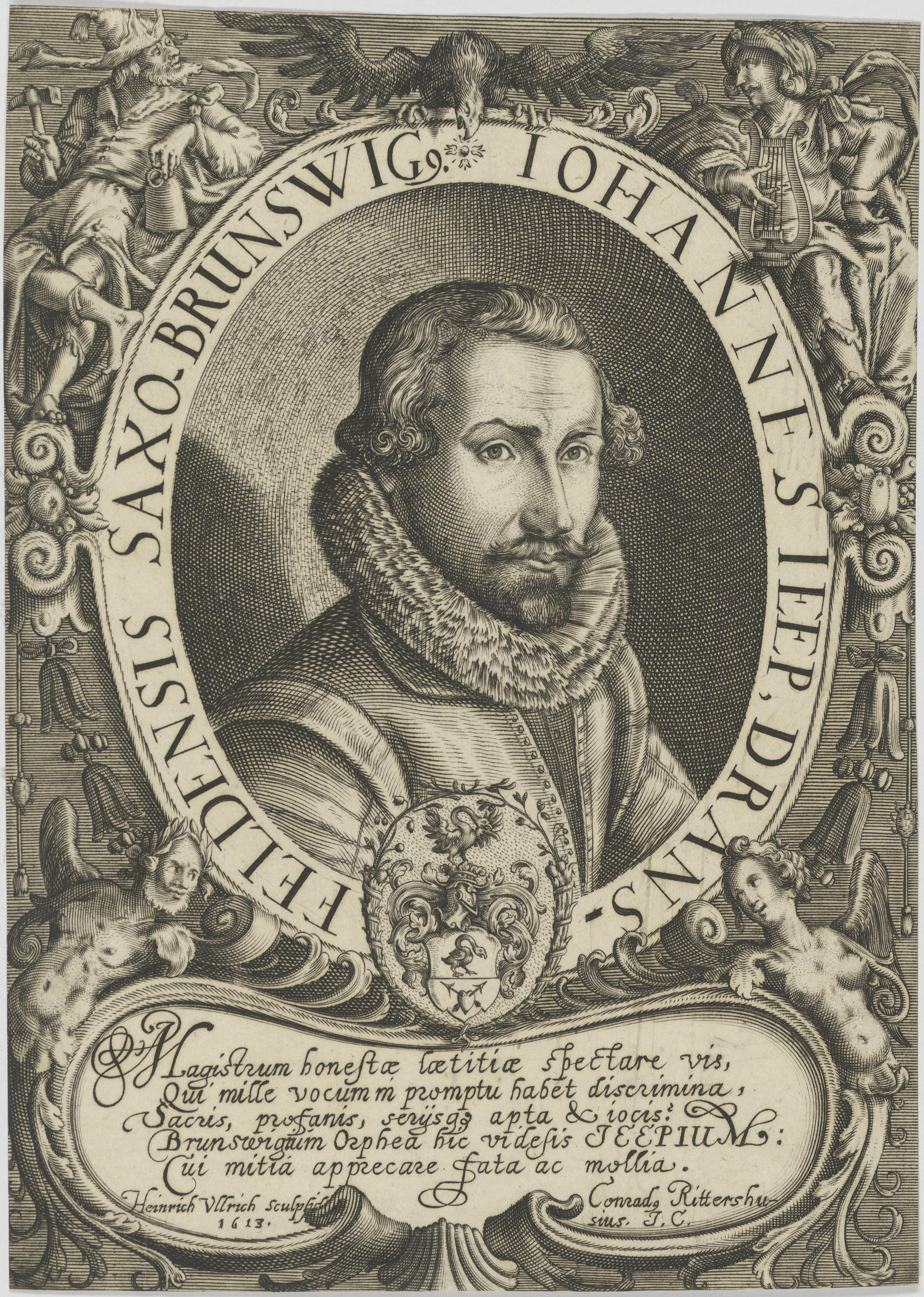|
Stephen Daedalus
Stephen Dedalus is James Joyce's literary alter ego, appearing as the protagonist and antihero of his first, autobiographical novel, semi-autobiographic novel of artistic existence ''A Portrait of the Artist as a Young Man'' (1916) and an important character in Joyce's 1922 novel ''Ulysses (novel), Ulysses''. In ''Stephen Hero'', an early version of what became ''Portrait'', Stephen's surname is spelled "Daedalus" in more precise allusion to Daedalus, the architect in Greek myth who was contracted by King Minos to build the Labyrinth in which he would imprison his wife's son the Minotaur.Ovid, in his ''Metamorphoses'', suggests that Daedalus constructed the Labyrinth so cunningly that he himself could barely escape it after he built it. Buck Mulligan makes reference to the mythic namesake in ''Ulysses'', telling Stephen, "Your absurd name, an ancient Greek!" In revising the mammoth ''Stephen Hero'' into the considerably more compact ''Portrait of the Artist as a Young Man'', Joyc ... [...More Info...] [...Related Items...] OR: [Wikipedia] [Google] [Baidu] |
A Portrait Of The Artist As A Young Man
''A Portrait of the Artist as a Young Man'' is the first novel of Irish writer James Joyce. A ''Künstlerroman'' written in a modernist style, it traces the religious and intellectual awakening of young Stephen Dedalus, Joyce's fictional alter ego, whose surname alludes to Daedalus, Greek mythology's consummate craftsman. Stephen questions and rebels against the Catholic and Irish conventions under which he has grown, culminating in his self-exile from Ireland to Europe. The work uses techniques that Joyce developed more fully in ''Ulysses (novel), Ulysses'' (1922) and ''Finnegans Wake'' (1939). ''A Portrait'' began life in 1904 as ''Stephen Hero''—a projected 63-chapter autobiographical novel in a realistic style. After 25 chapters, Joyce abandoned ''Stephen Hero'' in 1907 and set to reworking its themes and protagonist into a condensed five-chapter novel, dispensing with strict realism and making extensive use of free indirect speech that allows the reader to peer into St ... [...More Info...] [...Related Items...] OR: [Wikipedia] [Google] [Baidu] |
Leopold Bloom
Leopold Bloom is the fictional protagonist and hero of James Joyce's 1922 novel ''Ulysses''. His peregrinations and encounters in Dublin on 16 June 1904 mirror, on a more mundane and intimate scale, those of Ulysses/Odysseus in Homer's epic poem: The ''Odyssey''. Factual antecedents When Joyce first started planning a story in 1906 called "Ulysses" to be included in Dubliners, the central character was based on a Dublin acquaintance named Alfred Hunter whom Joyce had met traveling to a funeral in July 1904. Another model was probably Italo Svevo. The character's name (and maybe some of his personality) may have been inspired by Joyce's Trieste acquaintance Leopoldo Popper. Popper was a Jew of Bohemian descent who had hired Joyce as an English tutor for his daughter Amalia. Popper managed the company of Popper and Blum and it is possible that the name Leopold Bloom was invented by taking Popper's first name and anglicizing the name Blum. Fictional biography Bloom is introdu ... [...More Info...] [...Related Items...] OR: [Wikipedia] [Google] [Baidu] |
Characters In Novels Of The 20th Century
Character or Characters may refer to: Arts, entertainment, and media Literature * ''Character'' (novel), a 1936 Dutch novel by Ferdinand Bordewijk * ''Characters'' (Theophrastus), a classical Greek set of character sketches attributed to Theophrastus Music * ''Characters'' (John Abercrombie album), 1977 * ''Character'' (Dark Tranquillity album), 2005 * ''Character'' (Julia Kent album), 2013 * ''Character'' (Rachael Sage album), 2020 * ''Characters'' (Stevie Wonder album), 1987 Types of entity * Character (arts), an agent within a work of art, including literature, drama, cinema, opera, etc. * Character sketch or character, a literary description of a character type * Game character (other), various types of characters in a video game or role playing game ** Player character, as above but who is controlled or whose actions are directly chosen by a player ** Non-player character, as above but not player-controlled, frequently abbreviated as NPC Other uses in ... [...More Info...] [...Related Items...] OR: [Wikipedia] [Google] [Baidu] |
Literary Characters Introduced In 1918
Literature is any collection of written work, but it is also used more narrowly for writings specifically considered to be an art form, especially prose fiction, drama, and poetry. In recent centuries, the definition has expanded to include oral literature, much of which has been transcribed. Literature is a method of recording, preserving, and transmitting knowledge and entertainment, and can also have a social, psychological, spiritual, or political role. Literature, as an art form, can also include works in various non-fiction genres, such as biography, diaries, memoir, letters, and the essay. Within its broad definition, literature includes non-fictional books, articles or other printed information on a particular subject.''OED'' Etymologically, the term derives from Latin ''literatura/litteratura'' "learning, a writing, grammar," originally "writing formed with letters," from ''litera/littera'' "letter". In spite of this, the term has also been applied to spoken or s ... [...More Info...] [...Related Items...] OR: [Wikipedia] [Google] [Baidu] |
Fictional Irish People
Fiction is any creative work, chiefly any narrative work, portraying individuals, events, or places that are imaginary, or in ways that are imaginary. Fictional portrayals are thus inconsistent with history, fact, or plausibility. In a traditional narrow sense, "fiction" refers to written narratives in prose often referring specifically to novels, novellas, and short stories. More broadly, however, fiction encompasses imaginary narratives expressed in any medium, including not just writings but also live theatrical performances, films, television programs, radio dramas, comics, role-playing games, and video games. Definition Typically, the fictionality of a work is publicly marketed and so the audience expects the work to deviate in some ways from the real world rather than presenting, for instance, only factually accurate portrayals or characters who are actual people. Because fiction is generally understood to not fully adhere to the real world, the themes and context o ... [...More Info...] [...Related Items...] OR: [Wikipedia] [Google] [Baidu] |
Fictional Writers
Fiction is any creative work, chiefly any narrative work, portraying individuals, events, or places that are imaginary, or in ways that are imaginary. Fictional portrayals are thus inconsistent with history, fact, or plausibility. In a traditional narrow sense, "fiction" refers to written narratives in prose often referring specifically to novels, novellas, and short stories. More broadly, however, fiction encompasses imaginary narratives expressed in any medium, including not just writings but also live theatrical performances, films, television programs, radio dramas, comics, role-playing games, and video games. Definition Typically, the fictionality of a work is publicly marketed and so the audience expects the work to deviate in some ways from the real world rather than presenting, for instance, only factually accurate portrayals or characters who are actual people. Because fiction is generally understood to not fully adhere to the real world, the themes and conte ... [...More Info...] [...Related Items...] OR: [Wikipedia] [Google] [Baidu] |
Ulysses (novel) Characters
Ulysses is one form of the Roman name for Odysseus, a hero in ancient Greek literature. Ulysses may also refer to: People * Ulysses (given name), including a list of people with this name Places in the United States * Ulysses, Kansas * Ulysses, Kentucky * Ulysses, Nebraska * Ulysses Township, Butler County, Nebraska * Ulysses, New York *Ulysses, Pennsylvania * Ulysses Township, Potter County, Pennsylvania Arts and entertainment Literature * "Ulysses" (poem), by Alfred Lord Tennyson * ''Ulysses'' (play), a 1705 play by Nicholas Rowe * ''Ulysses'', a 1902 play by Stephen Phillips * ''Ulysses'' (novel), by James Joyce * ''HMS Ulysses'' (novel), by Alistair Maclean * Ulysses (comics), two members of a fictional group in the Marvel Comics universe * Ulysses Klaue, a character in Marvel comic books * Ulysses: Jeanne d'Arc and the Alchemist Knight, a light novel Film and television * ''Ulysses'' (1954 film), starring Kirk Douglas based on the story of Homer's ''Odyss ... [...More Info...] [...Related Items...] OR: [Wikipedia] [Google] [Baidu] |
Icarus (mythology)
In Greek mythology, Icarus (; grc, Ἴκαρος, Íkaros, ) was the son of the master craftsman Daedalus, the architect of the labyrinth of Crete. After Theseus, king of Athens and enemy of Minos, escaped from the labyrinth, King Minos suspected that Icarus and Daedalus had revealed the labyrinth's secrets and imprisoned them--either in a large tower overlooking the ocean or the labyrinth itself, depending upon the account. Icarus and Daedalus escaped using wings Daedalus constructed from feathers, threads from blankets, clothes, and beeswax. Daedalus warned Icarus first of complacency and then of hubris, instructing him to fly neither too low nor too high, lest the sea's dampness clog his wings or the sun's heat melt them. Icarus ignored Daedalus’ instructions not to fly too close to the sun, causing the beeswax in his wings to melt. Icarus fell from the sky, plunged into the sea, and drowned. The myth gave rise to the idiom, " fly too close to the sun". In some versions ... [...More Info...] [...Related Items...] OR: [Wikipedia] [Google] [Baidu] |
Contrast (linguistics)
In semantics, contrast is a relationship between two discourse segments. On contrast Contrast is often overtly marked by markers such as ''but'' or ''however'', such as in the following examples: # It's raining, ''but'' I am not taking an umbrella. # We will be giving a party for our new students. We won't, ''however'', be serving drinks. # The student knew about the test on Friday, ''but'' still he did not study. In the first clause, ''It's raining'' implies that the speaker knows the weather situation and so will prepare for it, while the second clause ''I am not taking an umbrella'' implies that the speaker will still get wet. ''Both clauses'' (or discourse segments) refer to related situations, or themes, yet imply a contradiction. It is this relationship of comparing something similar, yet different, that is believed to be typical of contrastive relations. The same type of relationship is shown in (2), where the first sentence can be interpreted as implying that by giving ... [...More Info...] [...Related Items...] OR: [Wikipedia] [Google] [Baidu] |
Saint Stephen
Stephen ( grc-gre, Στέφανος ''Stéphanos'', meaning "wreath, crown" and by extension "reward, honor, renown, fame", often given as a title rather than as a name; c. 5 – c. 34 AD) is traditionally venerated as the protomartyr or first martyr of Christianity."St. Stephen the Deacon" , St. Stephen Diaconal Community Association, Roman Catholic Diocese of Rochester. According to the Acts of the Apostles, he was a in the early Church at who angered members of various [...More Info...] [...Related Items...] OR: [Wikipedia] [Google] [Baidu] |
Johannes Jeep
Johannes Jeep (pronounced "Yape"; also Johann or Jepp; 1581/1582 – 19 November 1644) was a German organist, choirmaster and composer. Biography Jeep, who was born in Dransfeld, Germany, is remembered for his choral writing. He collected his student songs in ''Studentengartlein'', the first volume published in 1607, the second volume in 1609, and both published as a single volume in 1614. He also published more than one hundred hymns in the ''Hohenlohe Hymnbook'' in 1629. He was one of the first German musicians to travel to Italy. In 1613, he was appointed director of music for the court of the Count of Hohenlohe, serving until 1625. Around 1635, he served as organist at Frankfurt Cathedral. In 1642, he was appointed conductor for the court of the Count of Hanau. He died in Hanau, Germany. His best-known song is the 4-part madrigal "Musica, die ganz lieblich Kunst" ("Music, the most lovely art"). ''Ulysses'' The novelist James Joyce was an accomplished tenor. In ''Ulyss ... [...More Info...] [...Related Items...] OR: [Wikipedia] [Google] [Baidu] |
Martello Tower
Martello towers, sometimes known simply as Martellos, are small defensive forts that were built across the British Empire during the 19th century, from the time of the French Revolutionary Wars onwards. Most were coastal forts. They stand up to high (with two floors) and typically had a garrison of one officer and 15–25 men. Their round structure and thick walls of solid masonry made them resistant to cannon fire, while their height made them an ideal platform for a single heavy artillery piece, mounted on the flat roof and able to traverse, and hence fire, over a complete 360° circle. A few towers had moats or other batteries and works attached for extra defence. The Martello towers were used during the first half of the 19th century, but became obsolete with the introduction of powerful rifled artillery. Many have survived to the present day, often preserved as historic monuments. Origins Martello towers were inspired by a round fortress, part of a larger Genoese ... [...More Info...] [...Related Items...] OR: [Wikipedia] [Google] [Baidu] |







